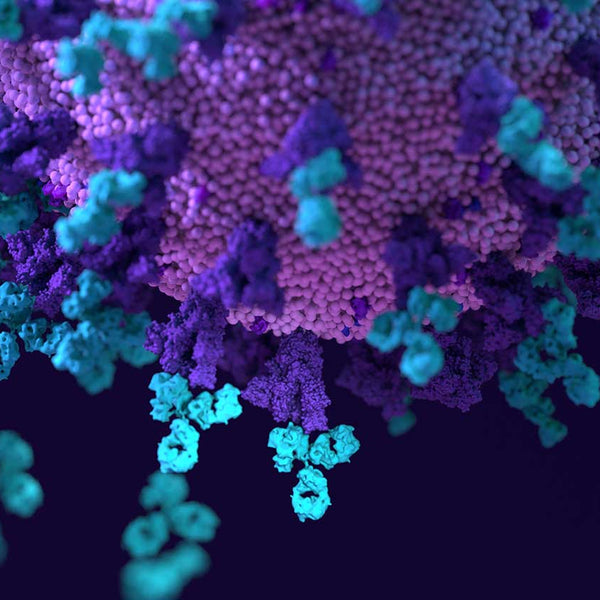
Immune Support With Enzymes
Nattokinase is a natural enzyme found in a Japanese soybean-based food called natto. This enzyme is produced during a fermentation process by bacteria called Bacillus subtilis. Natto is a popular dish in Japan that has been consumed for centuries due to its health benefits—particularly its positive impact on cardiovascular health [1].
Research shows that nattokinase boosts circulatory function and the health of the heart by supporting overall blood health [1-3]. This powerful enzyme achieves this benefit by targeting fibrin, a protein that is responsible for blood clot formation. Blood clots are vital to the healing process, but can also disrupt blood flow and put excess strain on the heart.
Proteolytic enzymes (such as nattokinase) assist in breaking down proteins within the GI tract when taken with food. Supporting protein digestion Undigested protein leads to the loss of essential nutrients and large undigested particles that linger in the GI tract can cause damage to the intestinal wall or abnormal levels of inflammation [4, 5]. Intestinal wall damage may allow partially digested food particles to enter the bloodstream, where antibodies attach to them to create circulating immune complexes (CICs) [4]. The formation of CICs signals the immune system to heighten production of white blood cells that can target and degrade CICs.
However, if CICs accumulate faster than the immune system can destroy them, various health problems may develop, including cardiovascular, cognitive, and blood sugar issues [4-10]. One way to minimize CIC build-up is to ensure the GI tract properly digests food particles, especially proteins.
This process is necessary to ensure that large protein molecules are efficiently broken down into amino acids that can be transported through your blood to different parts of your body, where they are converted into proteins that carry out important processes. This is how you spike the amount of protein your body actually uses, so you can get the most out of your favorite protein-rich foods and supplements.
References
- Sumi H, Hamada H, Tsushima H, et al. A novel fibrinolytic enzyme (nattokinase) in the vegetable cheese natto: A typical and popular soybean food in the Japanese diet. Experientia. 1987;43(10):1110-1111.
- Ren NN, Chen HJ, Li Y, Mcgowan GW, Lin YG. [A clinical study on the effect of nattokinase on carotid artery atherosclerosis and hyperlipidaemia]. Zhonghua Yi Xue Za Zhi. 2017;97(26):2038-2042.
- Pais E, Alexy T, Holsworth RE Jr, Meise HJ. Effects of nattokinase, a pro-fibrinolytic enzyme, on red blood cell aggregation and whole blood viscosity. Clin Hemorheol Microcirc. 2006;35:139-142.
- Eisenmann A, Murr C, Fuchs D, Ledochowski M. Gliadin IgG antibodies and circulating immune complexes. Scand J Gastroenterol. 2009;44(2):168-171.
- Engelhart MJ, Geerlings MI, Meijer J, et al. Inflammatory proteins in plasma and the risk of dementia: The Rotterdam study. Arch Neurol. 2004;61(5):668-672.
- Nijm J, Jonasson L. Inflammation and cortisol response in coronary artery disease. Ann Med. 2009;41(3):224-233.
- Koenig W. Inflammation and coronary heart disease: An overview. Cardiol Rev. 2001;9(1):31-35.
- Schmidt R, Schmidt H, Curb JD, et al. Early inflammation and dementia: a 25-year follow-up of the Honolulu-Asia Aging Study. Ann Neurol. 2002;52(2):168-174.
- Haffner SM. The metabolic syndrome: Inflammation, diabetes mellitus, and cardiovascular disease. Am J Cardiol. 2006;97(2A):3A-11A.
- Wellen KE, Hotamisligil GS. Inflammation, stress, and diabetes. J Clin Invest. 2005;115(5):1111-1119.